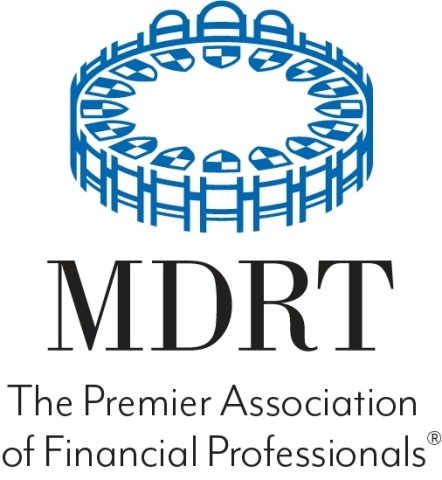MDRT Study Finds Americans Deem Emotional Intelligence the Most Trustworthy Quality in an Advisor
MDRT Study Finds Americans Deem Emotional Intelligence the Most Trustworthy Quality in an Advisor
Displays of emotional intelligence from advisors more likely to earn Americans’ trust than digital literacy
PARK RIDGE, Ill.--(BUSINESS WIRE)--The COVID-19 pandemic, its associated market volatility and new regulations to combat the fallout have all served as reminders that trust is the foundation of any advisor-client relationship. A recent Harris Poll study conducted on behalf of MDRT among over 2,000 U.S. adults found that 85% of Americans would be more likely to trust recommendations from human financial advisors if they demonstrate emotional intelligence. In a time of historic turmoil, advisors seeking to reassure, reposition or even retain clients must exhibit genuine empathy and compassion.
Clarity and communication
With 83% of Americans saying exhibiting emotional intelligence is important to building a quality client-advisor relationship, showing, not just stating, these abilities are key. The size of this majority indicates that emotional know-how is seen as a foundational skill rather than a mark of exceptional work.
Americans would be more likely to trust advice from advisors who:
- Listen to and acknowledge their clients’ needs (57%)
- Communicate in easily understood ways (57%)
- Follow through on their word (55%)
- Show they care about their clients as people (52%)
These majorities contrast with just 30% of Americans who say they would be more likely to trust the advice of advisors with up-to-date websites; even fewer (25%) say the same for advisors who regularly recommend relevant content. While digital literacy makes business operations more efficient and helps bring clients in the door, it does not by itself communicate trustworthiness.
“In this period of societal and institutional instability, financial advisors must connect with clients on more personal levels than ever before,” said Regina Bedoya, CLU, ChFC, MDRT President. “Advisors can successfully adjust and help clients navigate this new reality by embracing the sentimental side of financial advising.”
Most Americans with human financial advisors rate their emotional capabilities highly, with 89% saying their advisor displays strong emotional intelligence. However, room to grow still exists: only 32% of Americans who work with an advisor say their advisor can resolve conflicts, and only 40% say their advisor is disciplined in managing their own emotional reactions during their discussion.
Trust across generations
While popular perception holds that baby boomers and Generation Z stand on opposite ends of a societal spectrum, the two generations agree on what advisors can do to earn their trust. Sixty-one percent of baby boomers (born 1947–1965) and 62% of Gen Z (born 1998-2002) say they would be more likely to trust advisors who listen to and acknowledge their clients’ needs. In the generational middle, only 52% of Generation X (born 1966–1981) and 54% of millennials (born 1982–1997) say the same.
This gap extends to assessments of other skills. Almost half of baby boomers (47%) and Gen Z (49%) say they would be more likely to trust advisors who check in with their clients frequently, versus 39% of Gen X and 36% of millennials. Tailoring financial plans to economic cycles and policy trends elicits similarly divergent responses, with more baby boomers (39%) and Gen Z adults (40%) saying such work would make them more likely to find an advisor trustworthy than Gen Xers (28%) and millennials (24%).
This consistent divide could indicate that Gen X and millennials expect more from advisors than other generations. Advisors will need to work harder to connect with clients and prospects in these generations and build up the emotional foundations of trust over time.
“Consumers have clearly communicated their needs to advisors and paved a path for us to meet them,” Bedoya said. “As we work to build emotionally-centered client relationships, MDRT stands ready to exceed the expectations of the American people.”
To learn more about these findings, visit the MDRT Media Room.
Survey methodology: The survey was conducted online in the U.S. by The Harris Poll on behalf of MDRT from February 11–13, 2020, among 2,031 adults ages 18 and older, 526 of whom reported working with a human financial advisor. This online survey is not based on a probability sample and therefore no estimate of theoretical sampling error can be calculated. For complete survey methodology, including weighting variables and subgroup sample sizes, please contact Giang Ngo.
About MDRT
Founded in 1927, Million Dollar Round Table (MDRT), The Premier Association of Financial Professionals®, is a global, independent association of more than 72,000 of the world's leading life insurance and financial services professionals from more than 500 companies in 70 nations and territories. MDRT members demonstrate exceptional professional knowledge, strict ethical conduct and outstanding client service. MDRT membership is recognized internationally as the standard of excellence in the life insurance and financial services business. For more information, please visit mdrt.org and follow them on Twitter @MDRtweet.
Contacts
Giang Ngo
MDRT
847-993-4955
gngo@mdrt.org
@MDRTweet
Tori Unger
G&S Business Communications
312-648-6700
tunger@gscommunications.com
@ToriKUnger

